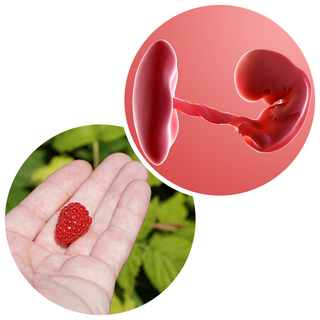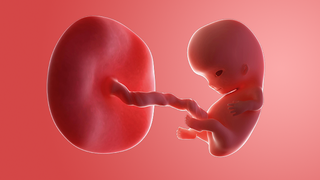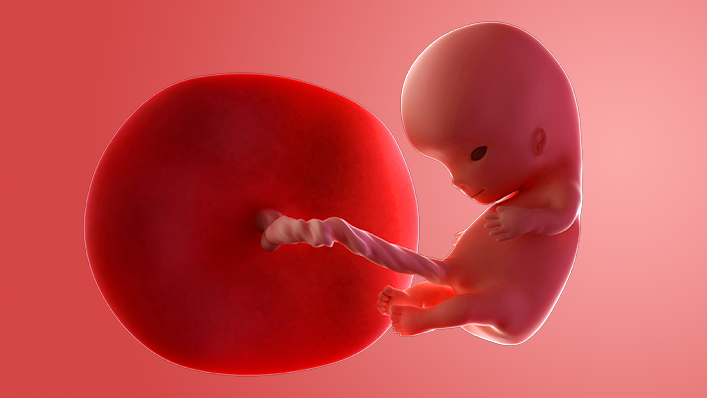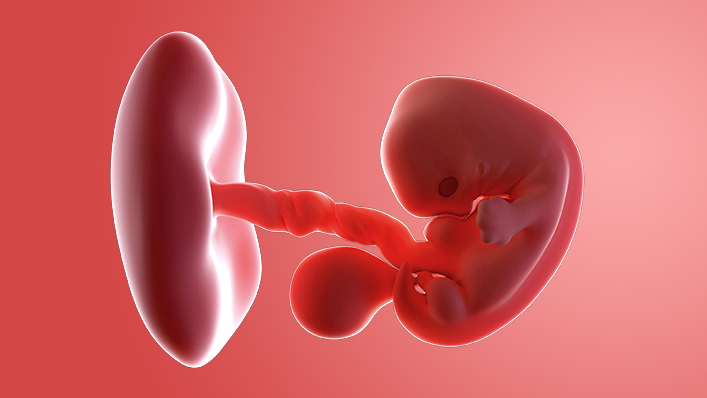Week 8
You might be feeling bloated and you may have slightly swollen breasts, but it will probably be a few more weeks before you start looking pregnant.
For information on your pregnancy journey, sign up for regular emails tailored to your stage of pregnancy or baby's age.
What's happening in my body?
Your baby is growing very quickly. The placenta is getting ready to provide nutrients and oxygen and take away the waste.
As part of this process, your placenta is sprouting little branches that will enable it to attach itself to the wall of your womb.
Beating the pregnancy blues
There may be times when you feel anxious and stressed. Look after yourself and get as much rest as you can. Try to eat 6 small healthy meals a day.
You could also experiment with mindfulness. You can read NHS advice on how to cope with feelings and relationships during your pregnancy.
The important thing is to share your worries, as there is lots of support available. A good start would be to talk to your midwife or doctor.
Early pregnancy symptoms (at 8 weeks)
You may be feeling tired and sick, you could find yourself peeing more often as your expanding womb pushes onto your bladder. If this starts to affect your sleep, try to drink lots of fluids in the day but less in the evenings.
Your symptoms could also include:
- a metallic taste in your mouth
- sore breasts
- morning sickness (read some ways to cope with morning sickness on week 6's page)
- headaches
- mood swings
- new likes and dislikes for food and drink
- a heightened sense of smell
- a milky white pregnancy discharge from your vagina
- light spotting (see your doctor if you get bleeding in pregnancy)
- cramping, a bit like period pains
- darkened skin on your face or brown patches – this is known as chloasma faciei or the "mask of pregnancy"
- thicker and shinier hair
- bloating and the feeling of being bloated (read ways to cope with bloating on week 10's page)
- morning sickness (see week 6 for morning sickness remedies)
What does my baby look like?
Your baby is now around 16mm long, which is about the size of a raspberry. By next week, they will be twice the size!
The tiny head has started to uncurl a bit. Their arms are getting longer and are bigger than the legs as the upper part of the body grows faster than the lower part. The legs are getting longer too, although the knees, ankles, thighs and toes have not developed yet.
Around now, your embryo becomes a "foetus", which means offspring in Latin.

Action stations
Sexually transmitted infections (STIs)
Do you think you or your partner could have an STI? If so, get checked out, as this could affect your baby's development. Talk to your midwife or GP, or visit a sexual health clinic.
Long-term conditions
If you have a long-term health condition, then let your specialist or GP know you're pregnant as soon as possible.
Don't stop taking any regular medication without discussing it with your doctor first.
Want to know when the baby's due?
Use the NHS's pregnancy due date calculator. You'll get a more accurate date from your doctor or midwife when you have a dating scan (usually at 8 to 14 weeks).
More in week-by-week

Week 9
Your pregnancy hormones are flooding your body, which may still be causing you to feel unwell. Thankfully this will not last forever.
More in week-by-week guide to pregnancy


